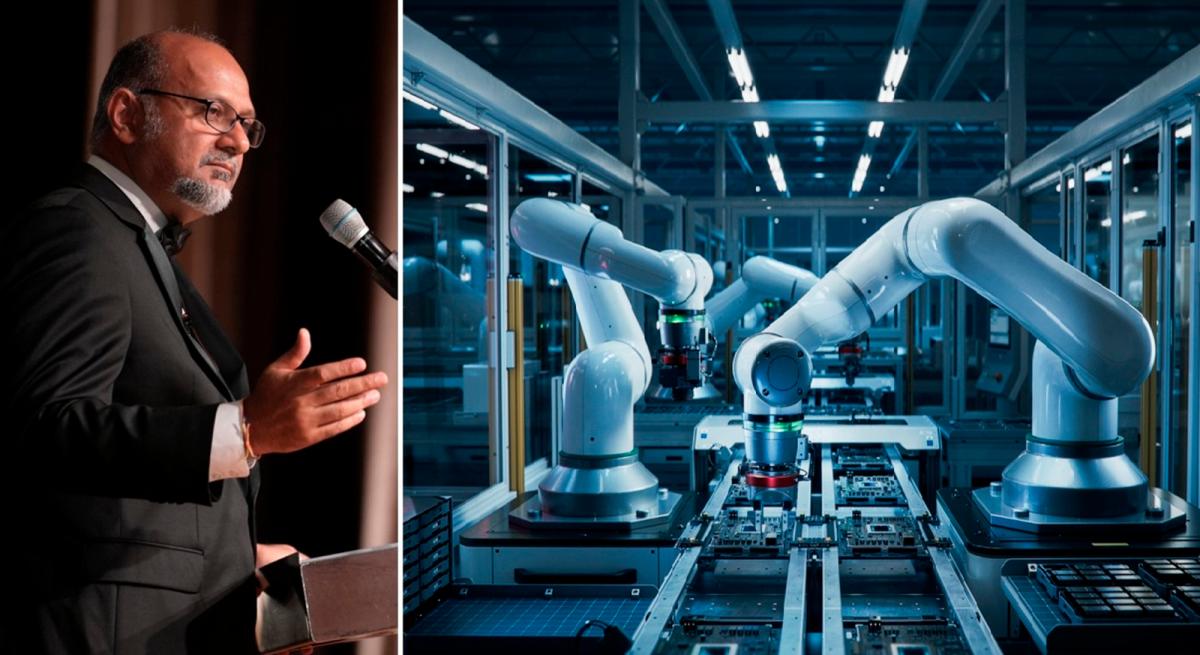Digital minister Gobind Singh Deo recently confirmed that the 2026 Budget will emphasise Malaysia’s transformation into an ‘AI Nation’ by 2030.
KUALA LUMPUR: Malaysia is rising as a central player in Asia Pacific’s push to modernise manufacturing with artificial intelligence (AI), even as a new study shows that many companies in the region are overestimating their readiness.
The IBM study, entitled ‘APAC AI-Driven Industry 4.0: Building Tomorrow’s Industries’, found that while 85% of firms described themselves as data-driven, only 11% were assessed as genuinely advanced in maturity.
The mismatch raises concerns that investment may be misdirected, resulting in stalled projects and underwhelming results.
This gap suggests that strategic investments could be misaligned if leaders overestimate their level of maturity, potentially leading to missed opportunities and stalled progress in their transformation efforts, according to the study.
The study, however, noted that Malaysia is increasingly recognised as a driver of AI-driven transformation in the Asia Pacific.
“Across APAC, the momentum for AI-driven transformation is undeniable, and Malaysia is rising as a key driver of that change,” said the study.
“With strong government vision, private-sector collaboration and a generation ready to innovate, the nation is poised to lead.”
Industry players believe this momentum could cement Malaysia’s status as a high-tech hub.
The Malaysia Semiconductor Industry Association (MSIA) noted that collaboration among manufacturers, policymakers, and technology partners is enabling local firms to capitalise on new opportunities throughout the value chain.
“Malaysia is charging ahead in the Industry 4.0 revolution, with the semiconductor sector at the forefront. Powered by data, automation and AI, the country is unlocking speed, precision and innovation like never before,” said MSIA director of technology Duncan Lee.
Meanwhile, IBM Malaysia country general manager Dickson Woo said that the momentum for AI-driven transformation across Asia Pacific is undeniable, with Malaysia well placed to lead through government vision, private-sector collaboration and a new generation ready to innovate.
Digital Minister Gobind Singh Deo recently confirmed that the 2026 Budget will emphasise Malaysia’s transformation into an ‘AI Nation’ by 2030, with a strong focus on GovTech initiatives and establishing a dedicated GovTech institution to enhance digital public-service delivery.
The ministry is also prioritising cybersecurity, personal data protection and the development of supporting structures for a new digital ecosystem — all aligned with Prime Minister Datuk Seri Anwar Ibrahim’s vision under the 13th Malaysia Plan.
Additionally, the AI Technology Action Plan 2026–2030, building on the earlier Roadmap 2021–2025, will reinforce the ethical use of AI, strengthen governance, support cross-sector collaboration, and promote sustainable talent development.
Across the wider region, however, structural weaknesses are evident, said the IBM study.
Only 10% of companies surveyed had a fully embedded Industry 4.0 strategy.
Around 70% had plans but were unable to execute them, often confining projects to pilots or isolated departmental efforts. Two-thirds of organisations pursued ad hoc use cases, while nearly three-quarters lacked mechanisms for sharing knowledge across teams.
This fragmented approach was identified as a key barrier to scale and innovation.
Human capital is another challenge, added the study. Just 26% of firms were running formal upskilling programmes, and only 16 per cent expressed confidence in their in-house expertise.
Meanwhile, adoption of core tools remains limited. Fewer than four in ten companies reported deploying predictive maintenance at scale, while only 37% had real-time supply-chain visibility.
Despite the gaps, several companies have shown what structured adoption can deliver.
An example cited is Malaysia’s SMART Modular Technologies, which is deploying automated visual inspection to improve quality assurance.
The study advised business leaders to align technology adoption with measurable outcomes, strengthen digital backbones for end-to-end visibility, and treat data as a strategic enterprise asset.
It also called for agile approaches to integrate new technologies into existing systems and to embed sustainability and human-centric thinking into all transformation efforts.
For Malaysia, the findings reinforce the country’s growing influence as it seeks to anchor itself at the centre of the global electronics supply chain.
Industry leaders say success will hinge on continued investment in talent and stronger cross-sector collaboration — a formula that could help the nation turn its early progress into long-term leadership.









